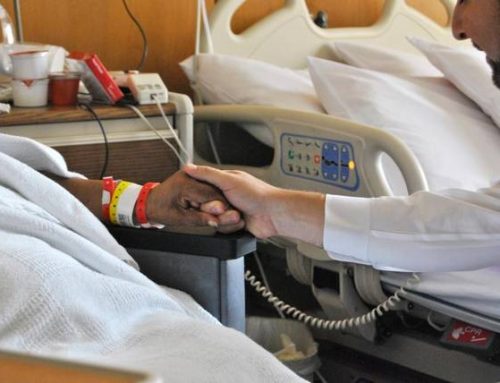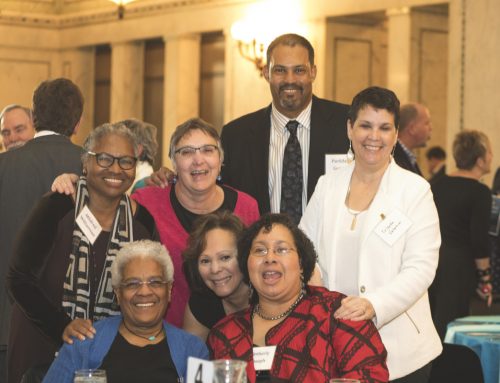Travis McClendon has been involved with Bishop Anderson House since 2000 and completed Bishop Anderson House’s Volunteer Lay Chaplaincy Training Course in 2004. He has been a volunteer at Northwestern Hospital since 1990, serving in various capacities before he began his ministry there in 2000.
Can you tell me what a volunteer chaplain does? They visit patients and make themselves present. Pure and simple. And just by being present, you go from there, with whatever needs they have. Sometimes, it’s merely conversation. Sometimes it’s prayer. Sometimes its the sacraments. A chaplain is a person who is a conduit for whatever the patient needs. I just let them talk. I listen to what they say. I try to interject some things that I’ve learned over the years and point out things that maybe they didn’t realize…which leads me to my interesting story, if we can jump into that?
Travis told us a story about an 80-year old man he visited in the hospital who was suffering from clinical depression: I said, “Tell me about it.” He told me about how all of his friends were dead and how he didn’t feel he had any reason to live. So I asked him, “Tell me a little bit about what you used to do. What did you use to do with those friends?” We went all the way back to his growing up in New England. He told me about being an altar boy at the tiny Episcopal Church where he was. He told me about his family. He told me about these friends that he had and how they were very much into the stage. We talked about some plays that he liked; I talked to him about some plays that I liked.
Now, one thing that was bothering the doctors was that he was not eating. Depression and not eating, not a good combination. But after talking about growing up in New England and him going to see plays and what not, he said that he was hungry! He asked, could I get something to eat for him? We shared a sandwich together and I said, “Jack, you know why you are still here? You know why you shouldn’t give up? There’s something that God still wants you to do.” And he said, “What’s that?” I said, “I don’t know. But I have a feeling that you’ll find out.” So, we shared the sandwich and everybody in the hospital—everybody in the ward—was very, very happy at that.
We went back to talking about his childhood in the Episcopal Church and he asked if I would give communion. I said, “Yes!” I was thrilled that he wanted to eat both ways: something physically and something spiritually. He wrote me the nicest letter a couple weeks later. Saying that he was back home and he was joining a group—one of the senior centers in Chicago—and he was starting to do things again. That was really one of the high points of my chaplaincy.
You know, when I think, “Oh, my goodness, things are so awful, what’s going to happen to me?”…then I realize that, you know, I have to put a smile on my face and go out into the world. There’s always something that God has for me to do out there.






Leave A Comment